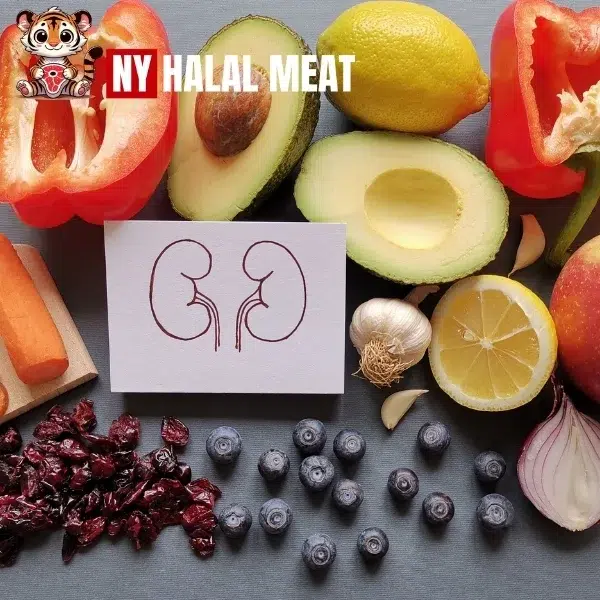Halal Meals for People with Chronic Kidney Disease: A Complete Guide
What is Chronic Kidney Disease (CKD)?
Chronic Kidney Disease (CKD) is a long-term condition where the kidneys gradually lose their ability to filter waste and excess fluids from the blood. Managing CKD involves diet, medication, and sometimes dialysis or kidney transplants. For Muslims, following halal dietary guidelines is also important while managing CKD.
Key Dietary Considerations for People with Chronic Kidney Disease
- Protein Intake: Moderation is key, as excess protein can increase the burden on kidneys.
- Sodium Intake: Reducing sodium helps manage blood pressure and prevents fluid retention.
- Potassium Levels: Limiting high-potassium foods helps maintain healthy blood levels.
- Phosphorus: Controlling phosphorus intake helps maintain bone health.
- Fluid Management: Monitoring fluid intake is essential in advanced CKD stages.
Halal Meals for Chronic Kidney Disease
Here are some kidney-friendly and halal meal ideas that fit within the dietary restrictions for CKD:
- Grilled Chicken with Quinoa and Vegetables: A balanced meal with lean protein and low-potassium grains.
- Vegetable Stir-Fry with Tofu: A healthy, plant-based meal with low-potassium vegetables and tofu.
- Baked Salmon with Steamed Broccoli and Brown Rice: A nutrient-dense meal rich in omega-3 fatty acids and low-potassium vegetables.
- Lentil Soup: A plant-based protein source with low-potassium vegetables and flavorful spices.
- Roasted Turkey with Mashed Cauliflower: A kidney-friendly alternative to mashed potatoes, with lean turkey.
- Chickpea Salad with Olive Oil Dressing: A refreshing and nutritious salad with low-potassium vegetables and chickpeas.
Tips for Preparing Halal CKD-Friendly Meals
- Avoid Processed Foods: Focus on fresh, whole foods to avoid excess sodium, phosphorus, and unhealthy fats.
- Limit High-Potassium Foods: Choose lower-potassium alternatives like apples and cucumbers instead of high-potassium foods like bananas and potatoes.
- Ensure Halal Certification: Always check for halal certification on packaged foods.
- Practice Portion Control: Mind portion sizes to manage protein and phosphorus intake.
Conclusion: Balancing Kidney Health and Halal Diet

Managing Chronic Kidney Disease while adhering to halal dietary guidelines is achievable with careful meal planning. By focusing on renal-friendly foods like lean proteins, low-potassium vegetables, and whole grains, and avoiding high-sodium and high-phosphorus foods, people with CKD can maintain their health and follow their faith.


